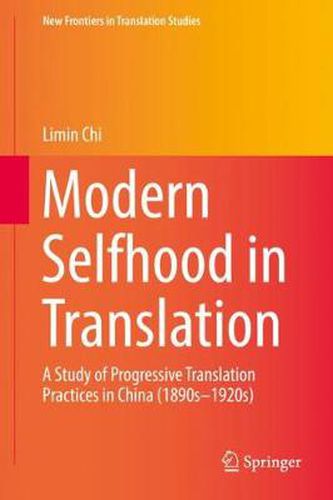Readings Newsletter
Become a Readings Member to make your shopping experience even easier.
Sign in or sign up for free!
You’re not far away from qualifying for FREE standard shipping within Australia
You’ve qualified for FREE standard shipping within Australia
The cart is loading…






This title is printed to order. This book may have been self-published. If so, we cannot guarantee the quality of the content. In the main most books will have gone through the editing process however some may not. We therefore suggest that you be aware of this before ordering this book. If in doubt check either the author or publisher’s details as we are unable to accept any returns unless they are faulty. Please contact us if you have any questions.
This book examines the development of Chinese translation practice in relation to the rise of ideas of modern selfhood in China from the 1890s to the 1920s. The key translations produced by late Qing and early Republican Chinese intellectuals over the three decades in question reflect a preoccupation with new personality ideals informed by foreign models and the healthy development of modern individuality, in the face of crises compounded by feelings of cultural inadequacy. The book clarifies how these translated works supplied the meanings for new terms and concepts that signify modern human experience, and sheds light on the ways in which they taught readers to internalize the idea of the modern as personal experience. Through their selection of source texts and their adoption of different translation strategies, the translators chosen as case studies championed a progressive view of the world: one that was open-minded and humanistic. The late Qing construction of modern Chinese identity, instigated under the imperative of national salvation in the aftermath of the First Sino-Japanese War, wielded a far-reaching influence on the New Culture discourse. This book argues that the New Culture translations, being largely explorations of modern self-consciousness, helped to produce an egalitarian cosmopolitan view of modern being. This was a view favoured by the majority of mainland intellectuals in the post-Maoist 1980s and which has since become an important topic in mainland scholarship.
$9.00 standard shipping within Australia
FREE standard shipping within Australia for orders over $100.00
Express & International shipping calculated at checkout
This title is printed to order. This book may have been self-published. If so, we cannot guarantee the quality of the content. In the main most books will have gone through the editing process however some may not. We therefore suggest that you be aware of this before ordering this book. If in doubt check either the author or publisher’s details as we are unable to accept any returns unless they are faulty. Please contact us if you have any questions.
This book examines the development of Chinese translation practice in relation to the rise of ideas of modern selfhood in China from the 1890s to the 1920s. The key translations produced by late Qing and early Republican Chinese intellectuals over the three decades in question reflect a preoccupation with new personality ideals informed by foreign models and the healthy development of modern individuality, in the face of crises compounded by feelings of cultural inadequacy. The book clarifies how these translated works supplied the meanings for new terms and concepts that signify modern human experience, and sheds light on the ways in which they taught readers to internalize the idea of the modern as personal experience. Through their selection of source texts and their adoption of different translation strategies, the translators chosen as case studies championed a progressive view of the world: one that was open-minded and humanistic. The late Qing construction of modern Chinese identity, instigated under the imperative of national salvation in the aftermath of the First Sino-Japanese War, wielded a far-reaching influence on the New Culture discourse. This book argues that the New Culture translations, being largely explorations of modern self-consciousness, helped to produce an egalitarian cosmopolitan view of modern being. This was a view favoured by the majority of mainland intellectuals in the post-Maoist 1980s and which has since become an important topic in mainland scholarship.